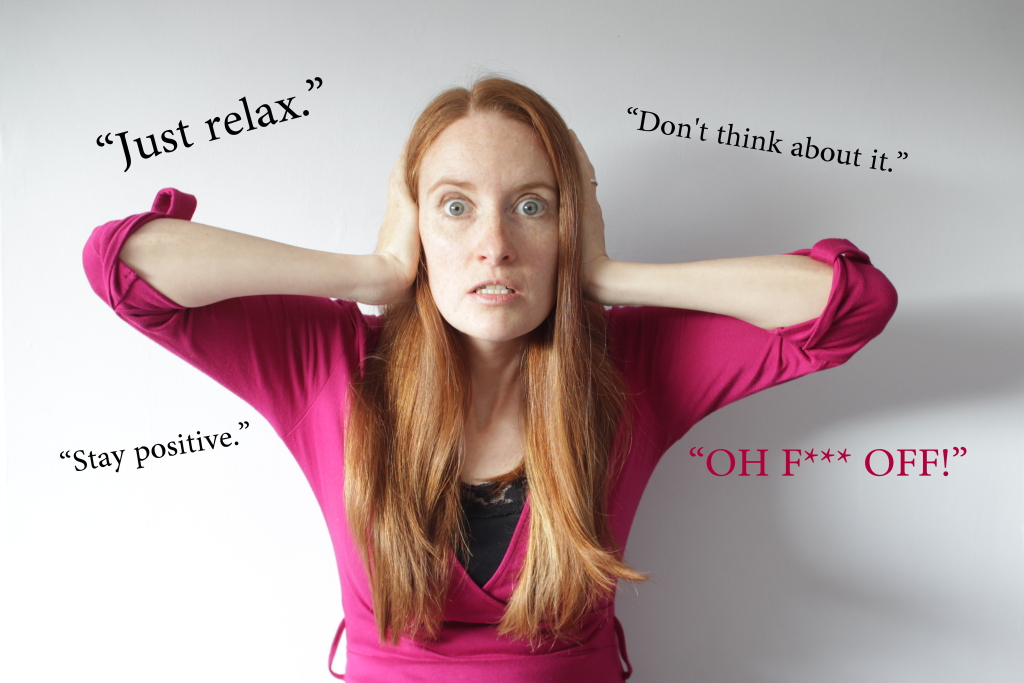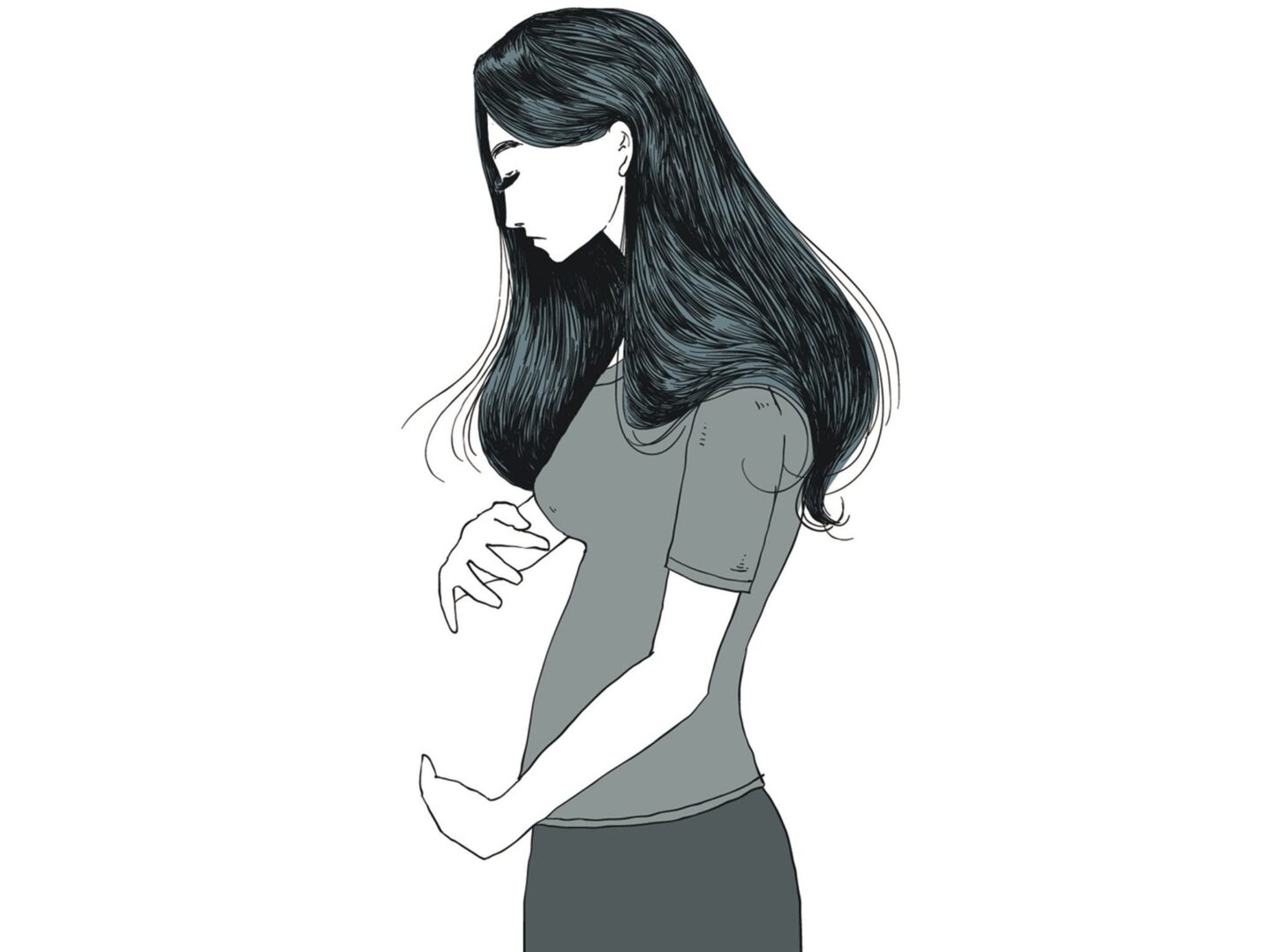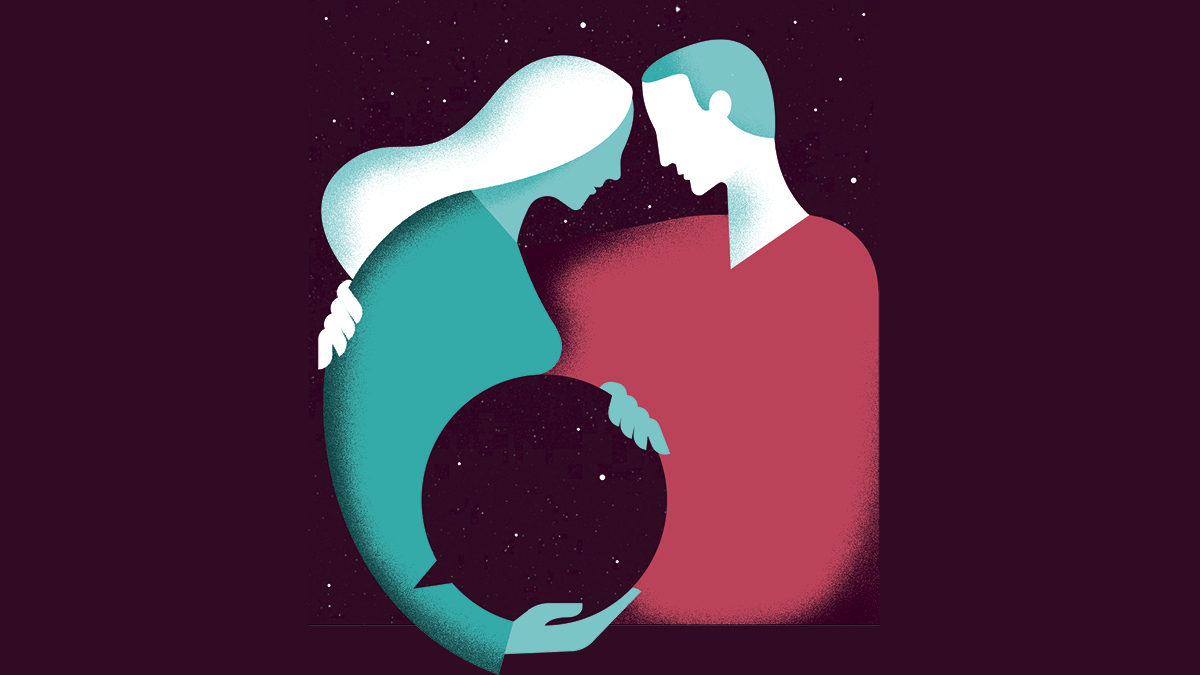
A quick Google search will reveal thousands of articles advising what not to say to someone who’s struggling with infertility. Does the world really need one more? Given that I’ve been on the receiving end of some unintentionally upsetting comments and questions, particularly after I announced that our last IVF cycle was unsuccessful yet again, I think it does.
When I started sharing our infertility story, I assumed that I’d be educating the elders, our parents’ and grandparents’ generations who were raised in strict, traditional and God- and community-fearing environments where they were actively discouraged from discussing their feelings.
I assumed wrong. Despite having more access to fertility-related information than ever before, it turns out that some of my generation is sorely lacking the sensitivity gene. So, here’s a guide to what to avoid saying to someone struggling with infertility, how it makes us feel and how to be more supportive.

Just relax
My first instinct on hearing these words is to tell that person to f**k off. Injecting yourself multiple times a day for a month in your belly and backside is stressful. Shoving pessaries in various orifices then dealing with the messy, waxy discharge as it slowly drips out of you is stressful. Being unable to commit to any plans during treatment is stressful. Having to juggle a full-time job and an IVF cycle (and maybe other children) is stressful.
And these are only the physical and practical inconveniences: let’s not forget the emotional, mental and financial worries. I personally find trying to manage my feelings to be the toughest challenge, remaining hopeful while preparing myself for another potential failure.
So, instead of telling someone to simply relax and merrily moving on, which minimises their overwhelming emotions and fears and inadvertently puts the blame on them, show up for them. Ask them how they are and listen (to understand, not to reply), send them a thoughtful gift to help them unwind, e.g. a luxury candle, bespoke letterbox biscuits or a meditation app subscription, or walk with them in silence and solidarity.

Have you thought about adoption?
I don’t know if there’s a right time to ask this question, but the wrong time is a day or two after a couple has announced that IVF has failed for the fourth time.
I concede that it’s hard to know what to say. Some people may want to act on alternatives immediately while others need time to process and heal. Either way, it’s a highly sensitive situation and you should tread carefully.
The day after our latest negative test result was confirmed, a strong sense of anger was building up inside me: I was fuming at the unfairness of infertility. At having to experience gruelling treatment repeatedly and still having an empty womb. Of seeing bumps and babies everywhere. Of feeling like a failure as a woman and a wife.
These raw, ugly emotions can’t be ignored: they must be acknowledged in order to recover. In the immediate aftermath of this heart-breaking news, I needed empathy and comfort, not a bright and breezy discussion about the next steps as if I should already be done grieving.
Incidentally, adoption isn’t the easy alternative. It sometimes feels like people think adopting a child is like online shopping: browse for a bit, select your favourite and get your order delivered to your door.
However, a more apt analogy would be a very lengthy, intense interview process, with you ‘selling yourself’ to several panels who scrutinise every aspect of your lives and request references from your family and friends, and former partners if one of you already has children.
Also, some people may be averse to adoption, or would love to pursue this path and have been denied for reasons out of their control.

You should hurry because time isn’t on your side
I know that the chances of conceiving decrease rapidly as we age while miscarriage rates increase, so this reminder is like you hitting me where it already hurts. In my case, I live with the daily regret of not trying to conceive sooner. Maybe if we had, and if my ovarian reserve had been low back then, we could’ve started treatment sooner and might have had a child by now.
Please never, ever say this to anyone. You may think you’re being helpful, but the outcome is added stress and pressure. Each birthday is increasingly difficult because it’s one more year of trying and failing to have a baby, so it feels like there’s little cause for celebration. With our 40th birthdays looming, reflecting on our lives will inevitably lead to comparisons with friends and family of a similar age who have children and are moving on. Meanwhile, we’re stuck in a rut and occasionally succeed in climbing up to catch a glimpse of light before being pushed down to the bottom again.
I realise that this sounds rather ‘woe is us’, and that we do have many things to be grateful for, but trying to beat infertility is an all-consuming race against time. Instead of pointing out that we’re not getting any younger, ask how we’re coping and what you can do to help.
Be positive
Even though being optimistic doesn’t affect the outcome of a cycle whatsoever, it does improve the experience, so I made a gigantic effort to think positively during the last couple of rounds. I even allowed myself to visualise, which is scary as you’re setting yourself up for a painful fall.
But there are days when the dream feels incredibly out of reach, like a carrot being dangled in front of you, but you can never quite catch it. During those moments, when someone tells me to “Be positive”, I interpret that as, “Your negativity makes me uncomfortable, so I’m going to stick to a short and sweet safe comment and swiftly change the subject because I’ve done my bit.” These two words instantly invalidate my experience and feelings.
I appreciate that it’s awkward to be confronted with someone who’s suffering, but please avoid platitudes: you can’t fix our infertility with a few words, especially not these ones. It’s a complex situation with complex emotions which requires sensitivity. The best thing to do is to keep checking in, see how we’re feeling and give us the space and time to express everything, which includes the dark and depressing stuff, without judging us or trying to solve our problems.

You seem to want this more than I ever did
This is one of the strangest comments I’ve heard so far: why would we be bothering with IVF if we didn’t want to have a baby? I can think of many things to spend thousands on instead of this zero-guarantee adventure. Injections, transvaginal scans, blood tests and regular trips to the operating theatre aren’t exactly fun (well, as someone who struggles to fall and stay asleep, I do enjoy being knocked out by general anaesthetic).
The truth is that I was never someone who has always fantasised about being a mother and it took a miscarriage for me to realise that I did want to have children.
Again, I strongly advise against uttering these words. Especially if you were fortunate enough to conceive naturally and easily; it makes me feel like I’m desperate. To someone battling infertility, this basically sounds like you’re saying we’re a big fat failure and even the best clinics can’t help us.
So, whose fault is it?
Firstly, our infertility diagnosis is our business and it’s never OK to pry, particularly not when it’s phrased this way. Hearing that you have an issue that’ll make it harder for you to conceive is a lot to get your head around, which you might not want to divulge immediately, or ever.
Secondly, regardless of who has been diagnosed, it’s a mutual problem: it affects both of us. In our case, I may be the one undergoing treatment, but my husband is equally involved. It hasn’t been easy for him to administer painful intramuscular injections while I cry, produce sperm samples in unsexy situations, support me when my emotions spiral out of control and grieve alongside me.
So, does it really matter who’s ‘at fault’? If someone opens up to you about a devastating diagnosis, refrain from assigning blame and say: “I’m sorry you have to experience this and I’m thinking of you.” No judgement, no advice and no success stories, please.

At least you know you can get pregnant
Sure, but I had a miscarriage and I’m not pregnant now, so how is that helpful? As it turns out, that has been our only pregnancy; we’ve gone on to have four unsuccessful IVF cycles since then.
If you ever hear yourself starting a sentence with “At least you…”, stop right there. Don’t say another word. We could play the comparison game all day long: “At least you don’t have cancer,” “At least you’re not single,” “At least you’re not unemployed and homeless.” Yes, I’m lucky in many ways, but if I’m grieving, please don’t diminish my pain and attempt to brush it under the carpet.
Don’t give up + random success story
It’s great that your neighbour’s colleague’s daughter got pregnant after 5 rounds, but not everyone has it in them to keep going. That doesn’t make them weak or mean that they don’t want it enough.
Infertility treatment isn’t like taking a course of antibiotics: it’s physically, emotionally, mentally and financially exhausting. If someone has decided to call time on their dream, which will undoubtedly be one of the most difficult decisions they’ll have to make, don’t make it harder for them by making them feel guilty for “giving up”. As Caroline of The Kitsch Hen recently said on the To Baby or Not To Baby podcast, she didn’t give up after nine years and no baby: she let go. It was a conscious decision and framing it in this way is empowering. Language matters.
Again, I know that these stories are meant to give us hope, but when our desired outcome seems unattainable and we’re barely holding on, they just don’t help. They reinforce our sense of shame and failure when others have succeeded and I’m already mad enough at my body for its flaws.
Are you struggling to conceive and dealing with these sorts of well-meaning comments and questions on top of everything else? I’ve included some of my blog posts and articles below, and you can find more on my Press & Media page here.
LINKS
Me, Myself and IVF, Third Time Unlucky, Things I Wish I’d Known About IVF (Stylist), How to Cope with Fertility Treatment (Eastern Eye), The Kitsch Hen,
PIN FOR LATER


It’s hard enough going through what you both have gone through, so having to deal with insensitive comments is certainly not what you need! This is such a great article, Seetal – brave, frank, revealing and a real help for people to understand a bit of what it’s like for people going through these difficulties, and how best to support them.
Author
Thanks so much for your kindness and compassion, Aaron – it means the world to us! While I know that people don’t intend to hurt someone when they say these things, it’s hard to keep hearing them when they offer no comfort whatsoever and make you feel worse. Hopefully this post will explain why these comments and questions are painful and encourage them to speak more carefully next time.
You are a powerhouse of a woman, Seetal! Thank you for sharing your thoughts and experience. You are one of the bravest people I know. I have no doubt that your words and honesty are going to be land exactly where they need to — time and time again; be that to comfort, teach or show what’s needed and what’s not necessary during a journey like this. Sending lots of love to you both. X
Author
You’re so kind, Lucie – thank you! It’s very challenging to document our experience in real time, sharing the highs and the lows with everyone as they happen, but knowing that my words are helping people to feel less alone, as well as giving people an insight into how it feels to undergo fertility treatment, keeps me going during the hard times. I know that these comments and questions aren’t uttered with malicious intent, but they do hurt and so I hope that this post explains why and encourages people to be more supportive to anyone battling infertility. Thanks again. x